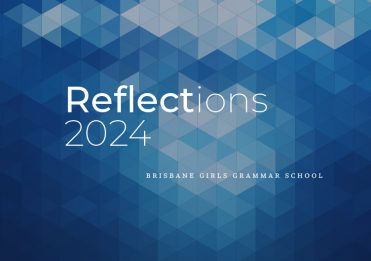International Women’s Day concert
Last Friday evening, the Instrumental Music department enthralled the audience at our International Women’s Day concert. The program featured works from numerous well-established Australian women composers and some of our own student composers.
The feedback being received is overwhelming in its generosity. Given the severely disrupted preparation, it is testament to the professionalism and dedication of our staff and students to be able to deliver such an incredibly high-calibre performance.
Thank you to our ensemble directors, staff, students, Music Support Group, technical crew, and Senior Leadership Team for supporting this signature event.
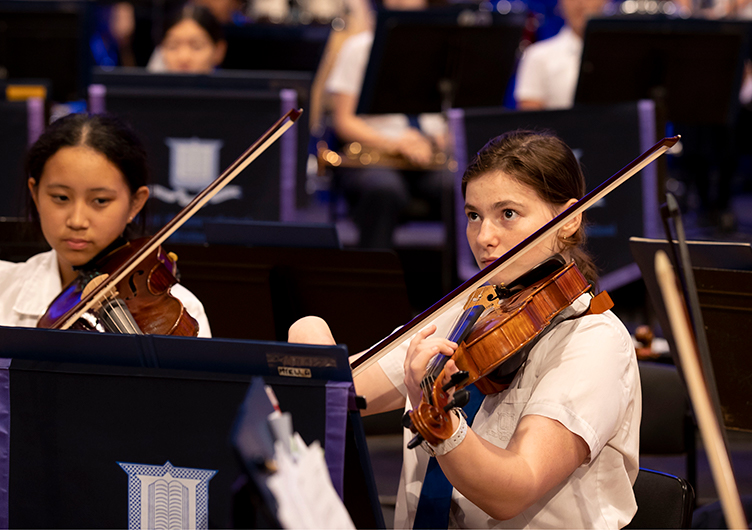
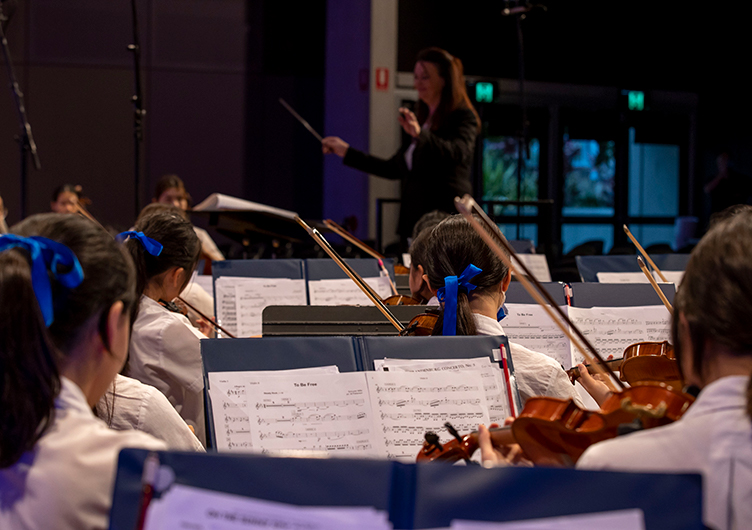
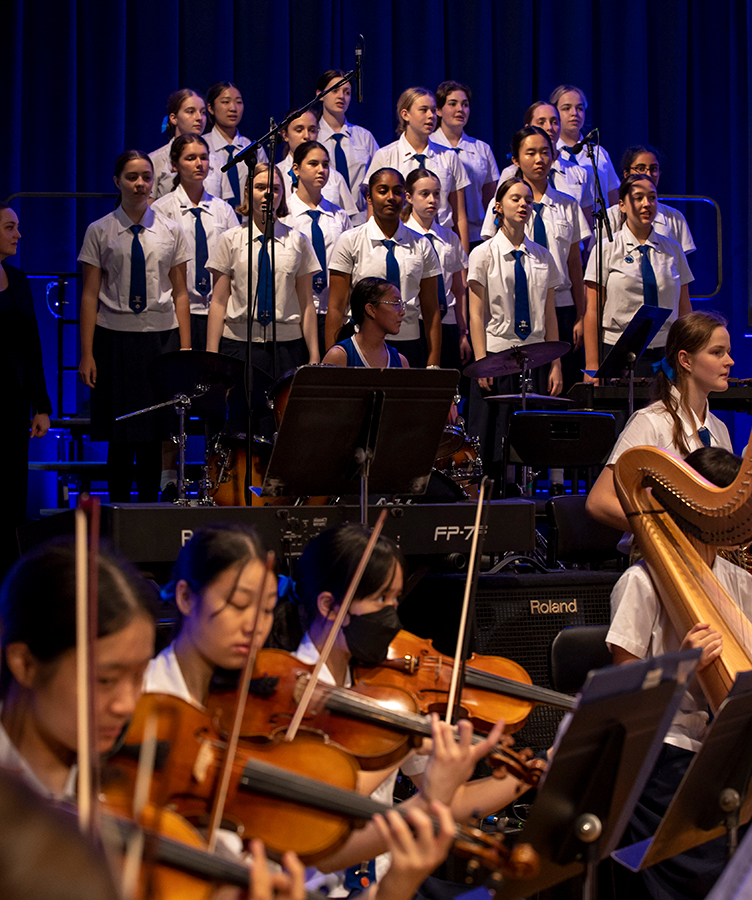
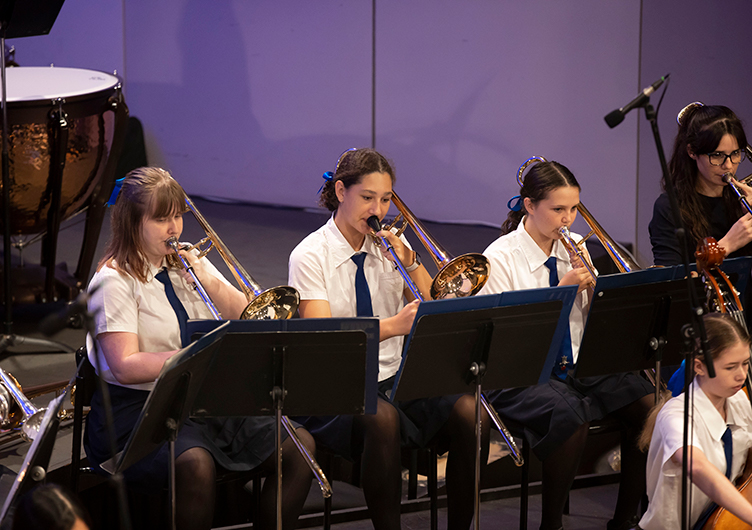
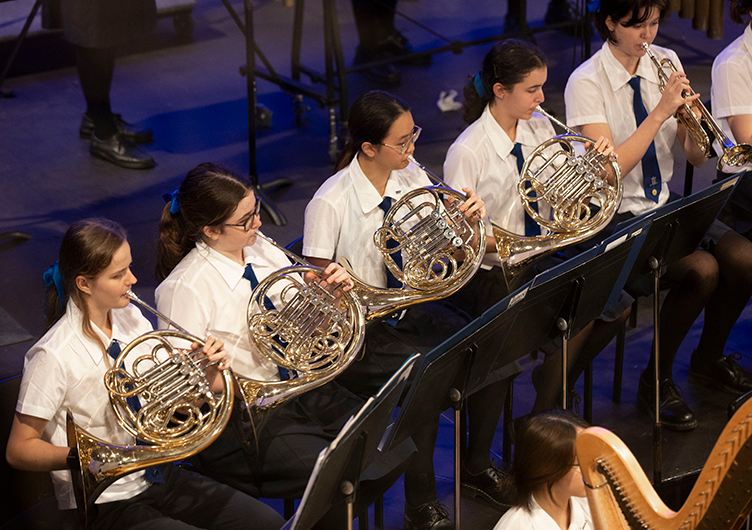
Junior Band workshop (Tuesday 22 March—3.30 pm to 6 pm)
Next Tuesday, our Wind Band and Wind Ensemble will participate in the Junior Band workshop. The students in these bands will be fortunate to work with two very experienced and highly regarded musicians, Ms Jodie Lutherborrow and Ms Clare Deady, both of whom have conducted the Sunshine Coast Youth Orchestra over the last 20 years. Ms Lutherborrow and Ms Deady are both Instrumental Music Teachers with Education Queensland and have many decades of teaching and conducting expertise between them.
At the workshop, students will work through specific repertoire, address performance skills and etiquette, refine their instrument and ensemble skills, and share in the wonderful experience of creating music together in a larger group.
Students are to ensure they have their instrument, music, and are appropriately attired in full School uniform.
There will be a $2 sausage sizzle from 4.45 pm to 5.15 pm for students.
Autumn Choral Concert—Roma Street Parklands
Next Thursday 24 March, we will be presenting our Autumn Choral Concert at the Roma Street Parklands Amphitheatre. Featuring Euphonix, Voices, Vox, Encore, Celtic Ensemble, and Gypsy Band, our students will entertain the audience with a wide-ranging repertoire that is sure to suit the musical tastes of everyone. Parents and friends are warmly invited to attend, and bookings are made via HUMANITIX.
Audience members are encouraged to bring their own drinks but are gently reminded that alcohol is not permitted on site. The concert is scheduled to start at 6 pm.
We look forward to seeing you there!

Jazz and Percussion concert—Wednesday 30 March
In Week 10, Brisbane Girls Grammar School will be holding our Jazz and Percussion concert. This year, we are creating a jazz club feel in the Louise McDonald Room. Special seating arrangements, lighting, and sound will contribute to the new experience for audience members at this concert. The evening will also feature a special guest performance by former BGGS students—drummer, Abigail Chadirchi (2021), and vocalist, Tiffany Davidson (2018), and their band. The concert will be held between 6 pm to 8 pm and the ensembles will also have a sound-check in the afternoon, following the below timetable.
Students will have access to a $2 sausage sizzle from 4.30 pm to 5.30 pm and families will be able to purchase picnic boxes with tickets and enjoy them at their tabled seating throughout the concert. There will also be an Easter-themed raffle. Tickets can be purchased with cash on the evening. Students are requested to donate an Easter-themed item for this raffle, please. Donations can be dropped at Miss Porter’s office.
Come along for a relaxed evening in a wonderful environment while being entertained by our jazz ensembles and percussionists.
Arrival times for performers
Sound checks will be held from 3.40 pm in the Louise McDonald Room
3.40 pm—Big Band
4 pm—Stage Band
4.20 pm—Little Big Band
4.40 pm—Jazz Ensemble
5 pm—Percussion 1
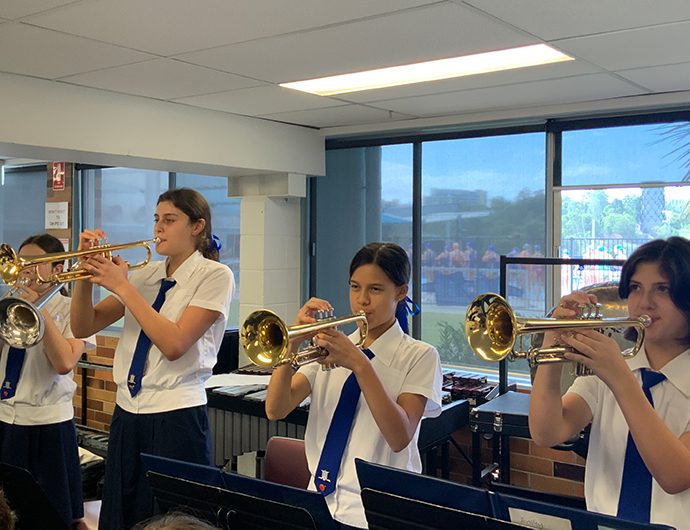
Edmee Gainsford Viola Prize open for entries
The Viola Prize was given in memory of Mrs Edmee Gainsford (nee Park) who attended the School in the 1930s and maintained a lifelong interest in, and encouragement of, young musical performers and composers. Her son, Dr Len Gainsford, presented the School with a Garbor Draskoczy viola, which will be played for 12 months by the School’s most accomplished viola player each year.
The Viola Prize competition will be held on Thursday 31 March.
Further information can be accessed on the Instrumental Music competitions page. Entries can be submitted here by 5 pm, Monday 21 March.
‘Learned helplessness’—what it is and how it applies to Instrumental Music
Learned helplessness—a maladaptive behavioural response characterised by avoidance of challenge and feelings of helplessness[i]—was discovered accidentally by psychologists Martin Seligman and Steven F. Maier. Studies involving classical conditioning in dogs led the psychologists to propose that a perceived lack of control over outcome can result in one giving up. Thus, learned helplessness is the belief that our own behaviour does not influence an outcome or result. For example, when a student believes that she can control the outcome, she may think, ‘If I study hard for this test, I’ll get a good grade.’ On the contrary, a student exhibiting learned helplessness may believe, ‘No matter how hard I study for this test, I’ll always get a bad grade.’
Learned helplessness can arise in many situations, including performance, in Instrumental Music. Statements such as: ‘This is too hard for me, I’ll never be able to do it’; or ‘I’ll never remember the chromatic scale, there’s too many notes’ can signal a feeling of learned helplessness.
In Instrumental Music, the phenomenon of learned helplessness is not exclusively linked to an overall result, like a pass/fail on an assessment, it can also be a factor in a particular song, skill, or individual technique. Possibly due to not reaching the expected outcome, some students can begin to doubt their own abilities, leading them to decrease their effort, particularly when faced with difficult tasks. This pattern of giving up when facing difficult tasks might reinforce a student’s belief that she cannot overcome her difficulties[ii] and so, it can become a self-fulfilling prophecy.
The notion of control is an important one. When a student believes she has control, it can be constructive: ‘If I practice, I will improve my mark’; ‘I could schedule 15 minutes of practice time, five times per week in my diary’; ‘I missed a few lessons where I could have learned that’; ‘If I can fix this one thing, it will help me overall’. However, when a student does not feel in control, it can invite destructive thinking: ‘I’m hopeless’; ‘The teacher just doesn’t like me’; ‘I’ve tried to do it before and it didn’t work, so I can’t do it’. The self-talk differences can be subtle, but profoundly important and have a lasting impact.
Being discouraged by an error is not an uncommon reaction and, therefore, is not a reason to be alarmed. Consciously and knowingly avoiding the potential solution is where problems may develop. In Instrumental Music, there are myriad techniques, learning tools, conceptual developments, and skill builders that teachers use to overcome technical difficulties related to musical instruments. Breaking music down into more manageable pieces, transposing passages, playing games, dexterity exercises, scaffolding skills development, implementing analogies to everyday life, etc. are just some examples of approaches that can be helpful.
Arguably, the highest hurdle to overcome with learned helplessness in music performance is accepting risk. If the risk of making an error is not accepted, then learned helplessness can take over. What is always encouraged and articulated in Instrumental Music is that making mistakes is a part of the process of improving. Instrumental Music endeavors to create an environment where students feel safe to take risks and accept the outcome, both positive and negative. We hope to teach students that, apart from personal disappointment, frustration, and maybe a little embarrassment, there is no dire end-result from making a mistake.
‘I have not failed. I have just found 10 000 ways that won’t work.’ – Thomas Edison
The ultimate reward or pay-off for students and staff is seeing the glow, or look of pride when a student overcomes a challenge and experiences success. Providing opportunities for success are the teaching cures to learned helplessness. Once a student feels empowered and is prepared to accept the associated risk, they have taken the first and most crucial step on the path to achieving success. Perhaps this was one of the origins of the statement ‘When the student is ready, the teacher will appear’.
Instrumental Music staff are regularly asked how parents and families can better support their child through challenges related to music performance. There are numerous practical ways families can support their child. These include, but are not limited to:
- providing a calm, quiet space for individual practice
- ensuring students are well-equipped (instrument maintenance items, music stand, quality instrument, etc.)
- encouraging regularly scheduled times to practice at home
- encouraging and congratulating your daughter for persisting through difficult pieces
- focusing not just on the end result, but also the strategy your daughter used to get there e.g. hard work, persistence, courage
- helping students balance their time
- attending performances, wherever possible, and providing encouragement of musical pursuits
- being inquisitive about a student’s musical endeavours.
Applying the PERMA[iii] Theory of Well-Being—a stepwise approach to negotiating understanding of the subject matter:
Positive Emotion
Engagement
Relationships
Meaning
Accomplishment
Developing confident, resilient, and tenacious young people, who develop into responsible, hard-working contributors to society, begins and ends with us—the adults around them. In Instrumental Music, we thoroughly enjoy being on the path to developing responsible risk-takers, supporting them through their challenges and triumphs, and partnering with parents to provide the best possible outcomes for their children.
MSG news
MSG was delighted to assist with the wonderful International Women’s Day concert held last Friday 11 March. Thanks to all of our volunteers on the night! We are proud to announce that the event raised $1100 for Share the Dignity from ticket sales and cash donations, and we thank everyone who supported this cause.
The MSG helps to feed your girls prior to school events, as well as providing welcome drinks and ticketing support for audience members. We have a couple of busy weeks ahead of us and would appreciate parents volunteering to assist us at events that involve your daughters. Please see the following volunteer links to sign up:
Junior Band Workshop—Tuesday 22 March volunteersignup.org/XYEHM
Autumn String Concert—Monday 28 March volunteersignup.org/RF4LW
Jazz & Percussion Concert—Wednesday 30 March volunteersignup.org/WRBKT
Please contact us at msgbggs@gmail.com if you have any questions about the MSG.
Looking ahead
- Tuesday 22 March—Junior Band workshop (BGGS) 3.30 pm to 5.30 pm
- Thursday 24 March—Autumn Choral concert (Roma Street Parklands) 6 pm to 7.15 pm
- Wednesday 30 March—Jazz and Percussion concert (Louise McDonald Room) 6 pm to 7 pm
References
[i] http://psychology.iresearchnet.com/developmental-psychology/social-development/what-is-learned-helplessness/
[ii] https://www.verywellmind.com/what-is-learned-helplessness-2795326
[iii] https://ppc.sas.upenn.edu/learn-more/perma-theory-well-being-and-perma-workshops



